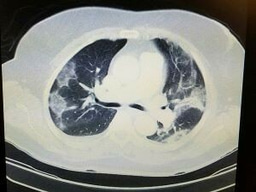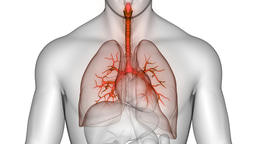Call for papers: Mechanics and fluid dynamics in cardiovascular disease
Published in Healthcare & Nursing and General & Internal Medicine

BMC Cardiovascular Disorders is calling for submissions to our Collection on Mechanics and fluid dynamics in cardiovascular disease. The study of cardiovascular mechanics and blood flow dynamics can help us understand the mechanisms underlying various cardiovascular diseases, including atherosclerosis, aneurysms, valve dysfunction and heart failure.
This approach can address numerous challenges in cardiovascular medicine, including the detection of early-stage disease, risk stratification, the replacement of invasive techniques, and the need for patient-specific treatment planning. However, advances are needed to improve data assimilation methods, model accuracy, reduce the computational complexity of fluid dynamic simulations, and the implementation of flow-related biomarkers of disease into the clinic.
To help address this need and support SDG 3: Good Health and Wellbeing, BMC Cardiovascular Disorders invites authors to submit articles applying mechanics and fluid dynamics principles in cardiovascular research and medicine.
Meet the Guest Editors
Francesco Capuano: Polytechnic University of Catalonia - Barcelona Tech, Spain
Dr Francesco Capuano is an Assistant Professor in the Department of Fluid Mechanics at the Universitat Politècnica de Catalunya · BarcelonaTech (UPC). He received a PhD in Engineering from the University of Naples “Federico II” in 2015. His research is focused on developing high-fidelity and robust computational techniques for modeling and analysis of multiscale, multiphysics problems in engineering and biological systems. Particular emphasis is given to scale-resolving and physics compatible simulations of turbulent flows, cardiovascular biomechanics, and biological fluid dynamics. He has long-standing collaborations with clinical cardiologists aimed at identifying novel diagnostic and prognostic biomarkers of disease based on advanced blood flow analysis.
Isabella Leo: Magna Graecia University of Catanzaro, Italy
Dr Isabella Leo, MD, Cardiologist, PhD is currently a Research Associate in Cardiology at Magna Graecia University of Catanzaro, Italy. Her PhD project focused on a novel non-invasive quantification tool of intracardiac fluid dynamics. She has a special interest in multi-modality cardiovascular imaging and particularly in advanced echocardiography and cardiovascular magnetic resonance. She has been a clinical fellow in MRI for two years at Royal Brompton and Harefield Hospital, London and she has currently ongoing scientific collaborations with the CMR Department of the Royal Brompton and Harefield Hospitals.
Submission Guidelines
This Collection welcomes submission of original Research Articles. Should you wish to submit a different article type, please read our submission guidelines to confirm that type is accepted by the journal. Articles for this Collection should be submitted via our submission system, Snapp. During the submission process you will be asked whether you are submitting to a Collection, please select "Mechanics and fluid dynamics in cardiovascular disease" from the dropdown menu.
Articles will undergo the journal’s standard peer-review process and are subject to all of the journal’s standard policies. Articles will be added to the Collection as they are published.
The Editors have no competing interests with the submissions which they handle through the peer review process. The peer review of any submissions for which the Editors have competing interests is handled by another Editorial Board Member who has no competing interests.
Submission Status: Open | Submission Deadline: 28 May 2024
Follow the Topic
-
BMC Cardiovascular Disorders

This journal is an open access, peer-reviewed journal that considers articles on the characterization, prevention, diagnosis and treatment of disorders of the heart and circulatory system.
Related Collections
With Collections, you can get published faster and increase your visibility.
Pediatric cardiovascular disease
BMC Cardiovascular Disorders is calling for submissions to our Collection focusing on Pediatric cardiovascular disease, which encompasses a wide array of conditions affecting the heart and blood vessels in children, ranging from congenital heart defects to acquired heart diseases. With advancements in diagnostic techniques and treatment options, there has been a significant evolution in our understanding of these conditions. This Collection aims to gather research that addresses the complexities of pediatric cardiovascular disease. By focusing on this critical area, we aim to highlight the unique challenges and opportunities in the prevention and management of heart disease in infants, children, and adolescents.
Advancements in pediatric cardiology have led to improved outcomes for children with heart disease, particularly through early detection and intervention strategies. The development of minimally invasive surgical techniques and advanced imaging modalities has transformed treatment paradigms, allowing for better management of congenital and acquired conditions. Additionally, growing awareness of the importance of cardiovascular health during childhood has prompted initiatives aimed at prevention, education, and research. Continued investigation into the genetic, environmental, and lifestyle factors influencing pediatric cardiovascular disease is vital for enhancing care and outcomes for affected children.
Topics of interest for this Collection include but are not limited to:
- Epidemiology of pediatric cardiovascular disease
- Advances in treatment for congenital heart defects
- Impact of lifestyle factors on children's heart health
- Long-term outcomes for pediatric heart disease patients
This Collection supports and amplifies research related to SDG 3: Good Health and Well Being.
Publishing Model: Open Access
Deadline: Jul 08, 2026
Mitochondrial dysfunction in cardiovascular disease
BMC Cardiovascular Disorders is calling for submissions to our Collection on Mitochondrial dysfunction in cardiovascular disease. Mitochondrial dysfunction has emerged as a critical factor in the pathogenesis of cardiovascular diseases, including heart disease. These organelles are integral to energy production, cellular metabolism, and the regulation of reactive oxygen species. Disturbances in mitochondrial function can lead to impaired ATP synthesis, increased oxidative stress, and ultimately contribute to the development and progression of cardiovascular conditions. Understanding the intricate relationship between mitochondrial health and cardiovascular disease is essential for developing targeted therapeutic strategies.
Recent advancements have highlighted the role of genetically inherited mitochondrial mutations in conditions such as maternally inherited essential hypertension and coronary heart disease. Future studies may elucidate the specific pathways linking mitochondrial dysfunction to cardiovascular disease, paving the way for the development of targeted interventions. Innovations in gene therapy and mitochondrial-targeted antioxidants could revolutionize treatment approaches, enhancing not only the management of existing cardiovascular diseases but also offering preventive strategies for at-risk populations.
•Topics of interest include but are not limited to:
•Role of mitochondria in heart disease
•Mitochondrial dysfunction and oxidative phosphorylation
•Genetically inherited mitochondrial mutations in cardiovascular disease
•Impact of reactive oxygen species on cardiovascular health
•Mitochondrial metabolism and ATP production in heart function
This Collection supports and amplifies research related to SDG 3: Good Health and Well Being.
Publishing Model: Open Access
Deadline: Apr 30, 2026





Please sign in or register for FREE
If you are a registered user on Research Communities by Springer Nature, please sign in